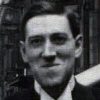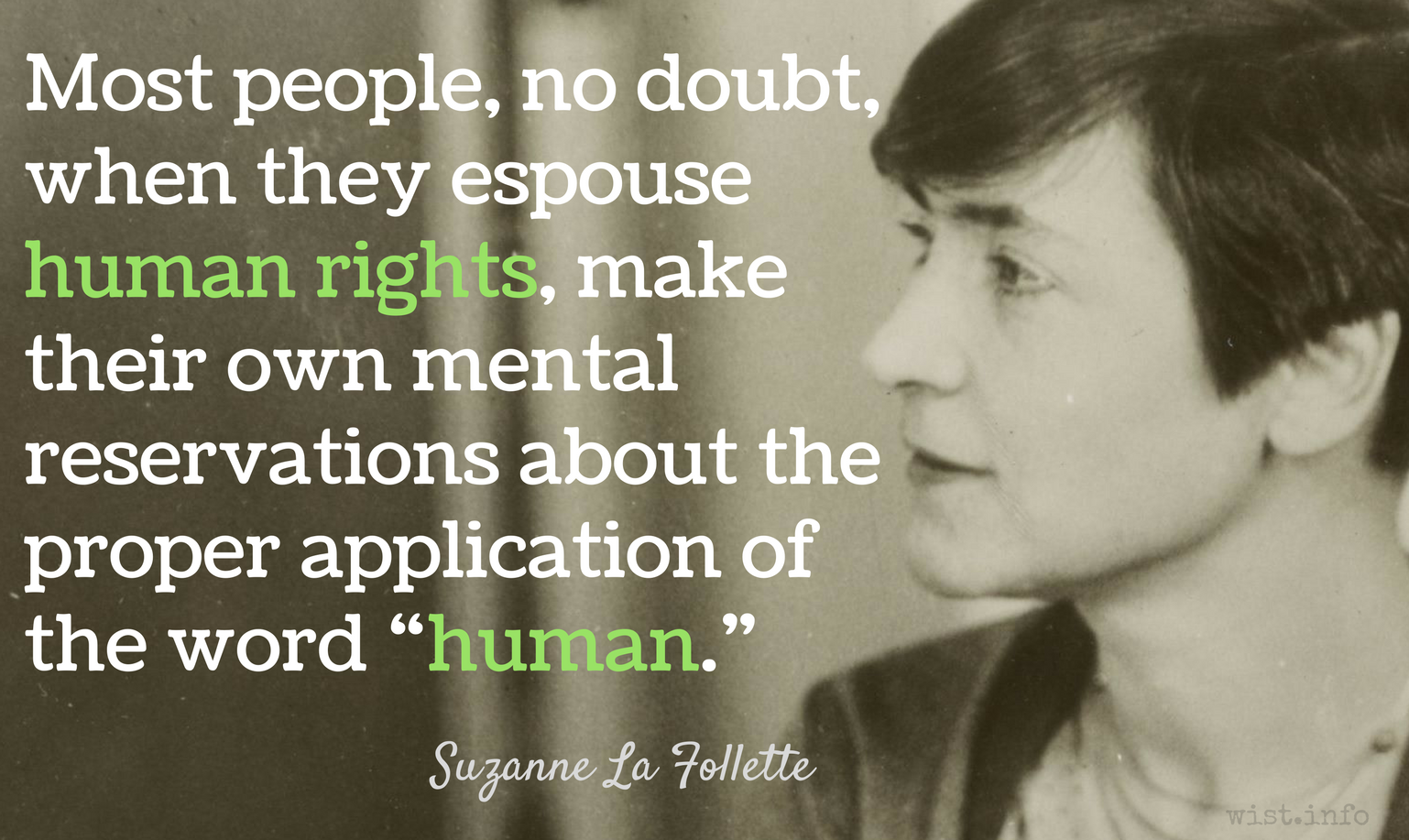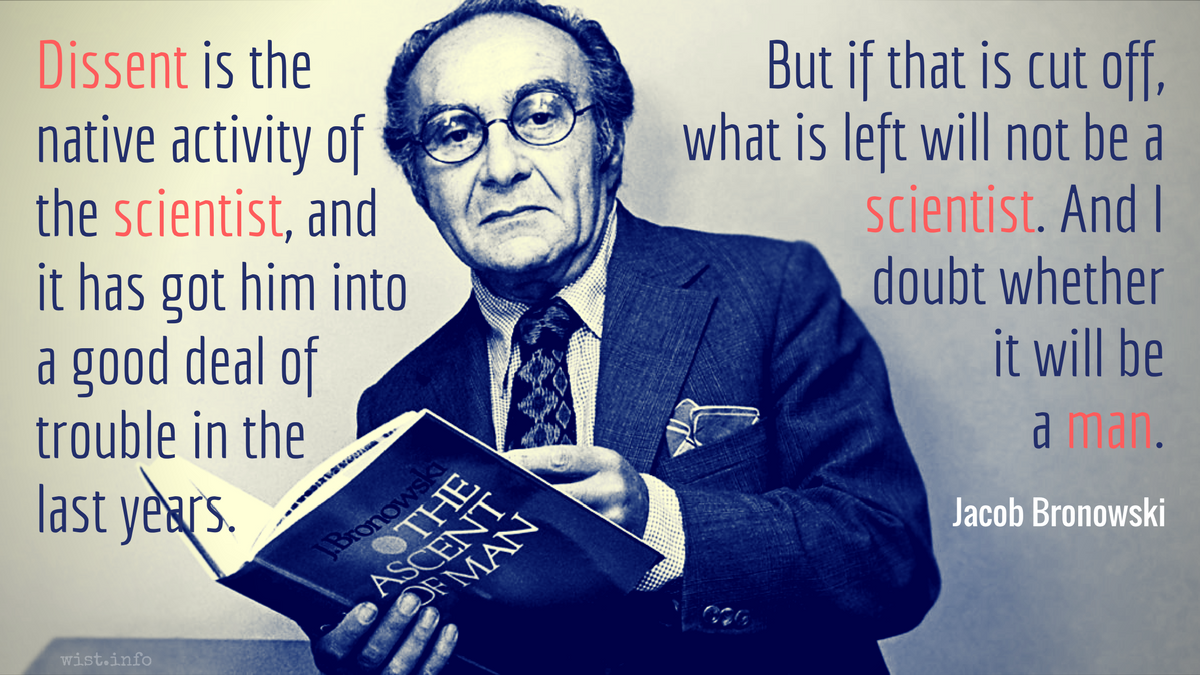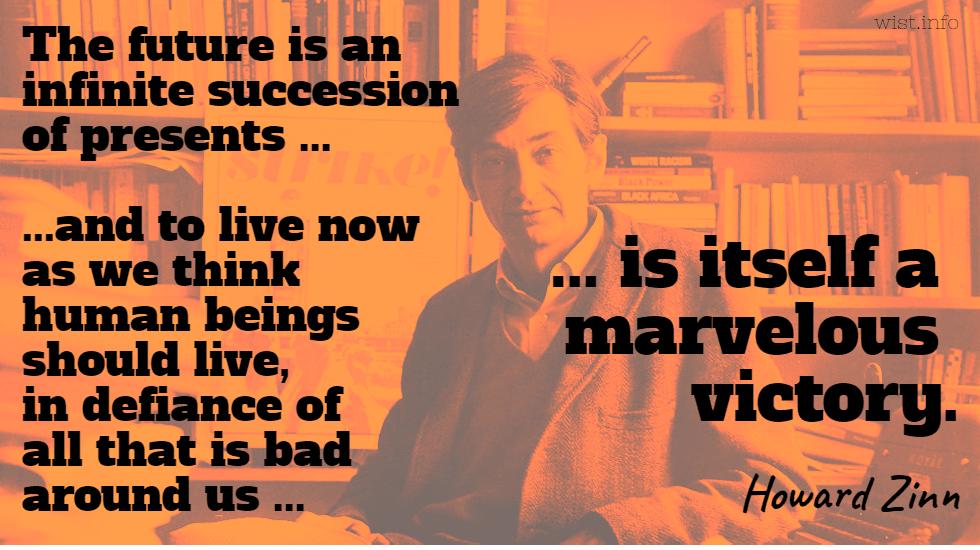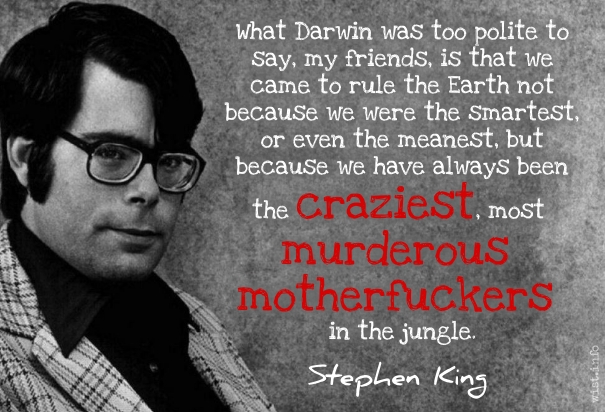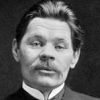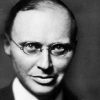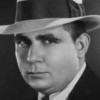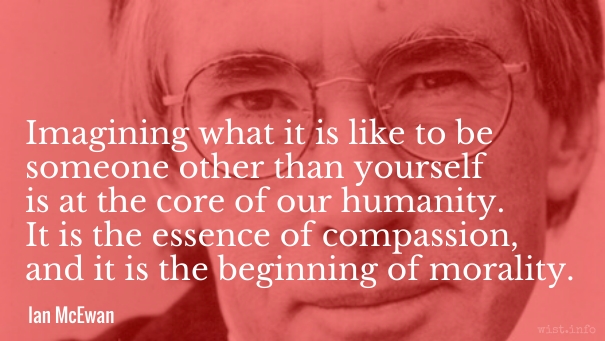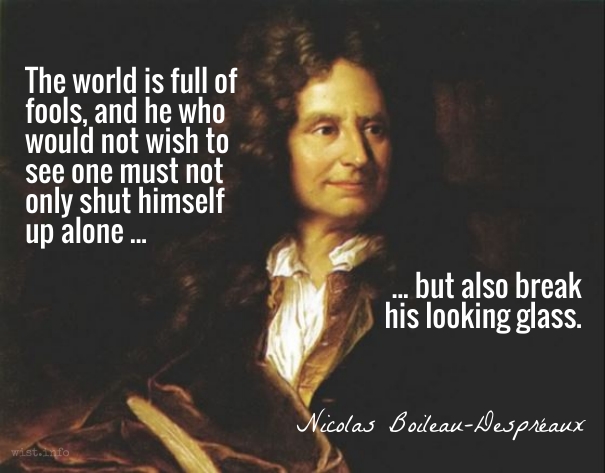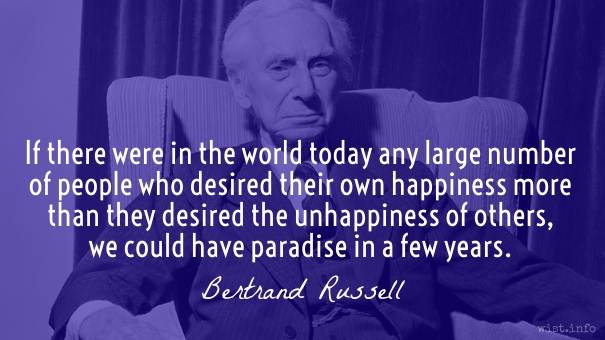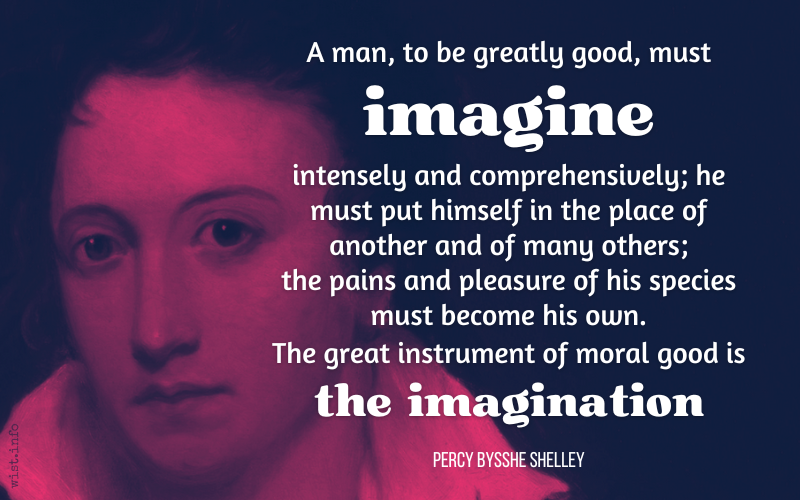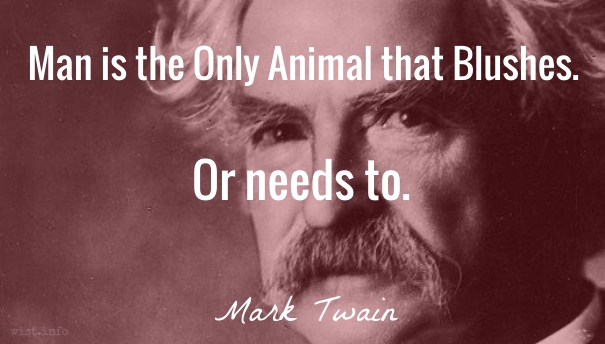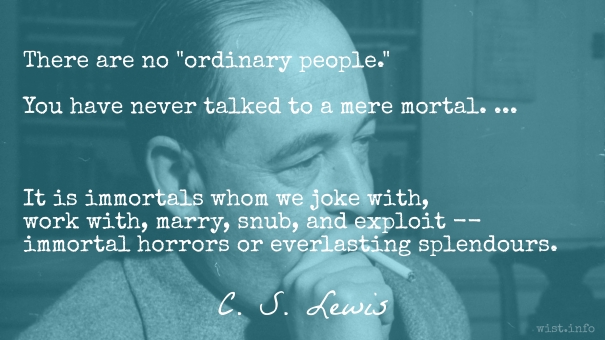That sort of thing wears thin — for when one’s cynicism becomes perfect and absolute, there’s no longer anything amusing in the stupidity and hypocrisy of the herd. It is all to be expected — what else could human nature produce? — so irony annuls itself by means of its own victories!
Quotations about:
humanity
Note not all quotations have been tagged, so Search may find additional quotes on this topic.
There is something wrong with our world, something fundamentally and basically wrong. I don’t think we have to look too far to see that. I’m sure that most of you would agree with me in making that assertion. And when we stop to analyze the cause of our world’s ills, many things come to mind. We begin to wonder if it is due to the fact that we don’t know enough. But it can’t be that. Because in terms of accumulated knowledge we know more today than men have known in any period of human history. We have the facts at our disposal. We know more about mathematics, about science, about social science, and philosophy than we’ve ever known in any period of the world’s history. So it can’t be because we don’t know enough. And then we wonder if it is due to the fact that our scientific genius lags behind. That is, if we have not made enough progress scientifically. Well then, it can’t be that. For our scientific progress over the past years has been amazing. Man through his scientific genius has been able to warp distance and place time in chains, so that today it’s possible to eat breakfast in New York City and supper in London, England. Back in about 1753 it took a letter three days to go from New York City to Washington, and today you can go from here to China in less time than that. It can’t be because man is stagnant in his scientific progress. Man’s scientific genius has been amazing. I think we have to look much deeper than that if we are to find the real cause of man’s problems and the real cause of the world’s ills today. If we are to really find it I think we will have to look in the hearts and souls of men.
Martin Luther King, Jr. (1929-1968) American clergyman, civil rights leader, social activist, preacher
“Rediscovering Lost Values,” Sermon, Second Baptist Church, Detroit (28 Feb 1954)
(Source)
An individual has not begun to live until he can rise above the narrow horizons of his particular individualistic concerns to the broader concerns of all humanity. And this is one of the big problems of life, that so many people never quite get to the point of rising above self. And so they end up the tragic victims of self-centeredness. They end up the victims of distorted and disrupted personality.
Martin Luther King, Jr. (1929-1968) American clergyman, civil rights leader, social activist, preacher
“Conquering Self-Centeredness,” sermon, Dexter Avenue Baptist Church, Montgomery, Alabama (11 Aug 1957)
(Source)
The process which, if not checked, will abolish Man goes on apace among Communists and Democrats no less than among Fascists. The methods may (at first) differ in brutality. But many a mild-eyed scientist in pince-nez, many a popular dramatist, many an amateur philosopher in our midst, means in the long run just the same as the Nazi rulers of Germany: ‘Traditional values are to be debunked’ and mankind to be cut out into some fresh shape at the will (which must, by hypothesis, be an arbitrary will) of some few lucky people in one lucky generation which has learned how to do it.
Most people, no doubt, when they espouse human rights, make their own mental reservations about the proper application of the word “human.”
Suzanne La Follette (1893-1983) American journalist, author, feminist
Concerning Women, “The Beginnings of Emancipation” (1926)
(Source)
Dissent is the native activity of the scientist, and it has got him into a good deal of trouble in the last years. But if that is cut off, what is left will not be a scientist. And I doubt whether it will be a man.
Jacob Bronowski (1908-1974) Polish-English humanist and mathematician
Lecture, MIT (19 Mar 1953)
(Source)
Reprinted as Science and Human Values, Part 3, sec. 5 "The Sense of Human Dignity" (1961).
The power to become habituated to his surroundings is a marked characteristic of mankind.
John Maynard Keynes (1883-1946) English economist
The Economic Consequences of the Peace, ch. 1 (1919)
(Source)
The world either breaks or hardens the heart.
[En vivant et en voyant les hommes, il faut que le cœur se briese ou se bronze.]
Nicolas Chamfort (1741-1794) French writer, epigrammist (b. Nicolas-Sébastien Roch)
Products of Perfected Civilization [Produits de la Civilisation Perfectionnée], Part 2 “Characters and Anecdotes [Caractères et Anecdotes],” ch. 3 (frag. 771) (1795) [tr. Finod (1880)]
(Source)
(Source (French))
Attributed by Chamfort as a statement in a philosophical debate, made by M. D---. Finod's translation is very much a paraphrase, as is:
Contact with the world either breaks or hardens the heart.
[ed. Ballou (1882)]
More literal translations:
Living among men and observing them, the heart must either break or turn to bronze.
[tr. Merwin (1969)]
In living and in seeing men, the heart must break or be bronzed.
[Source]
Though attributed by Chamfort to "M. D----," he also used the phrase himself, and it is usually attributed to him. Toward the end of his life, he wrote:
Je m'en vais enfin, de ce monde où il faut que le cœur se briese ou se bronze.
[I am leaving at last from this world where the heart must break or become bronze.]
GERVAIS: Whenever I do a thing about animals, there’s always someone that goes, “What about children dying in Syria?” Yeah, that’s bad, too — can’t we care about both? Sometimes I go, “You carry on all your good work for the fucking children in Syria, and I’ll do this.” I love the fact that there’s a hierarchy of things that you’ve got to care about. I tweeted “I love humans — they’re just not my favorite animal.” That was to annoy people.
GQ: True, though?
GERVAIS: No, I’m not a maniac. Of course humans are my favorite animal. [pauses] But I’ve never met an animal who was a cunt.
Ricky Gervais (b. 1961) English comedian, actor, director, writer
Interview with Chris Heath, GQ (15 May 2013)
(Source)
To be hopeful in bad times is not just foolishly romantic. It is based on the fact that human history is a history not only of cruelty, but also of compassion, sacrifice, courage, kindness.
What we choose to emphasize in this complex history will determine our lives. If we see only the worst, it destroys our capacity to do something. If we remember those times and places — and there are so many — where people have behaved magnificently, this gives us the energy to act, and at least the possibility of sending this spinning top of a world in a different direction.
And if we do act, in however small a way, we don’t have to wait for some grand utopian future. The future is an infinite succession of presents, and to live now as we think human beings should live, in defiance of all that is bad around us, is itself a marvelous victory.
Howard Zinn (1922-2010) American historian, academic, author, social activist
“The Optimism of Uncertainty,” The Nation (2 Sep 2004)
(Source)
Adopted from Zinn's essay of the same name in Paul Loeb (ed.), The Impossible Will Take a Little While (2004). See also Zinn, "A Marvelous Victory" (23 Feb 2004).
To be a human being means to possess a feeling of inferiority which constantly presses towards its own conquest. … The greater the feeling of inferiority that has been experienced, the more powerful is the urge for conquest and the more violent the emotional agitation.
He who has so little knowledge of human nature, as to seek happiness by changing any thing but his own dispositions, will waste his life in fruitless efforts, and multiply the griefs which he purposes to remove.
Samuel Johnson (1709-1784) English writer, lexicographer, critic
The Rambler, #6 (7 Apr 1750)
(Source)
What Darwin was too polite to say, my friends, is that we came to rule the Earth not because we were the smartest, or even the meanest, but because we have always been the craziest, most murderous motherfuckers in the jungle.
Yes, yes, we are taught to fly in the air like birds, and to swim in the water like the fishes; but how to live on the earth we don’t know.
Maxim Gorky (1868-1936) Russian writer [b. Alexei Maximovich Peshkov]
(Attributed)
Quoting a Russian peasant on progress; cited in Lothrop Soddard, Social Classes in Post-War Europe (1925).
Quoted later by Martin Luther King, Jr., in "The Man Who Was a Fool," Strength to Love (1963): "We have learned to fly the air like birds and swim the sea like fish, but we have not learned the simple art of living together as brothers"; he used the same phrase in his Nobel Peace Prize lecture (1964).
Variant: "Now that we have learned to fly the air like birds, swim under water like fish, we lack one thing—to learn to live on earth as human beings."
Sometimes misattributed to George Bernard Shaw. See here for more information.
Whether you believe that life evolved over billions of years or God made everything, you can’t justify torturing an animal for a shampoo.
The truest American president we have ever had, the companion of Washington in our love and honor, recognized that the poorest man, however outraged, however ignorant, however despised, however black, was, as a man, his equal. The child of the American people was their most prophetic man, because, whether as small shop-keeper, as flat-boatman, as volunteer captain, as honest lawyer, as defender of the Declaration, as President of the United States, he knew by the profoundest instinct and the widest experience and reflection, that in the most vital faith of this country it is just as honorable for an honest man to curry a horse and black a boot as it is to raise cotton or corn, to sell molasses or cloth, to practice medicine or law, to gamble in stocks or speculate in petroleum. He knew the European doctrine that the king makes the gentleman; but he believed with his whole soul the doctrine, the American doctrine, that worth makes the man.
George William Curtis (1824-1892) American essayist, editor, reformer, orator
“The Good Fight” (1865)
(Source)
The world of books is the most remarkable creation of man. Nothing else that he builds ever lasts. Monuments fall; nations perish; civilizations grow old and die out; and, after an era of darkness, new races build others. But in the world of books are volumes that have seen this happen again and again, and yet live on, still young, still as fresh as the day they were written, still telling men’s hearts of the hearts of men centuries dead.
Clarence Day (1874-1935) American author and cartoonist
The Story of the Yale University Press, ch. 2 (1920)
(Source)
In spite of every sage whom Greece can show,
Unerring wisdom never dwelt below;
Folly in all of every age we see,
The only difference lies in the degree.[N’en déplaise à ces fous nommés sages de Grèce,
En ce monde il n’est point de parfaite sagesse :
Tous les hommes sont fous, et, malgré tous leurs soins,
Ne diffèrenet entre eux que du plus ou du moins.]
Kull was still mazed. “But being a wizard, having knowledge of all the ages and despising gold, glory, and position, what could Kaanuub offer Tuzun Thune that would make of him a foul traitor?”
“Gold, power, and position,” grunted Brule. “The sooner you learn that men are men whether wizard, king, or thrall, the better you will rule, Kull.”
Imagining what it is like to be someone other than yourself is at the core of our humanity. It is the essence of compassion, and it is the beginning of morality.
Ian McEwan (b. 1948) English novelist and screenwriter
“Only love and then oblivion,” The Guardian (15 Sep 2001)
(Source)
I know your race. It is made up of sheep. It is governed by minorities, seldom or never by majorities. It suppresses its feelings and its beliefs and follows the handful that makes the most noise. Sometimes the noisy handful is right, sometimes wrong; but no matter, the crowd follows it. The vast majority of the race, whether savage or civilized, are secretly kind-hearted and shrink from inflicting pain, but in the presence of the aggressive and pitiless minority they don’t dare to assert themselves. Think of it! One kind-hearted creature spies upon another, and sees to it that he loyally helps in iniquities which revolt both of them. Speaking as an expert, I know that ninety-nine out of a hundred of your race were strongly against the killing of witches when that foolishness was first agitated by a handful of pious lunatics in the long ago. And I know that even to-day, after ages of transmitted prejudice and silly teaching, only one person in twenty puts any real heart into the harrying of a witch. And yet apparently everybody hates witches and wants them killed. Some day a handful will rise up on the other side and make the most noise — perhaps even a single daring man with a big voice and a determined front will do it — and in a week all the sheep will wheel and follow him, and witch-hunting will come to a sudden end.
Popular reason does not always know how to act right, nor does it always act right when it knows.
Fisher Ames (1758-1808) American politician, orator
“No Revolutionist,” The Palladium (Nov 1801)
(Source)
It is a profound mistake to imagine that Christianity ever intended to dissipate the bewilderment and even the terror, the sense of our own nothingness, which come upon us when we think about the nature of things. It comes to intensify them. Without such sensations there is no religion. Many a man, brought up in the glib profession of some shallow form of Christianity, who comes through reading Astronomy to realise for the first time how majestically indifferent most reality is to man, and who perhaps abandons his religion on that account, may at that moment be having his first genuinely religious experience.
The Earth does not want new continents, but new men.
[Ce ne sont pas de nouveaux continents qu’il faut à la terre, mais de nouveaux hommes!]
Jules Verne (1828-1905) French novelist, poet, playwright
Twenty Thousand Leagues Under the Sea, Part 1, ch. 18 “Vanikoro” (1870) [tr. Smith & Co. (1873)]
(Source)
Ch. 19 in the French text.
Alt. trans.: "The planet doesn't need new continents, it needs new men." [Miller (1966)]
Although we tend to think about saints as holy and pious, and picture them with halos above their heads and ecstatic gazes, true saints are much more accessible. They are men and women like us, who live ordinary lives and struggle with ordinary problems. What makes them saints is their clear and unwavering focus on God and God’s people.
Among other things, you’ll find that you’re not the first person who was ever confused and frightened and even sickened by human behavior. You’re by no means alone on that score, you’ll be excited and stimulated to know. Many, many men have been just as troubled morally and spiritually as you are right now. Happily, some of them kept records of their troubles. You’ll learn from them — if you want to. Just as someday, if you have something to offer, someone will learn something from you. It’s a beautiful reciprocal arrangement. And it isn’t education. It’s history. It’s poetry.
The pleasure arising from an extraordinary agitation of the mind is frequently so great as to stifle humanity; hence arises the entertainment of the common people at executions, and of the better sort at tragedies.
If there were in the world today any large number of people who desired their own happiness more than they desired the unhappiness of others, we could have paradise in a few years.
Bertrand Russell (1872-1970) English mathematician and philosopher
Interview by Seth King, New York Times (1961-05-18)
Interview on his 89th Birthday. The article does not presently show up in the NYT archives, but the quotation is mentioned in Newsweek, "Newsmakers" (1961-05-29), and in Think Magazine, "Thoughts" (1961-12).
And why does this same God tell me how to raise my children when he had to drown his?
Robert Green Ingersoll (1833-1899) American lawyer, agnostic, orator
Some Mistakes of Moses, Sec. 18 “Dampness” (1879)
(Source)
A man, to be greatly good, must imagine intensely and comprehensively; he must put himself in the place of another and of many others; the pains and pleasure of his species must become his own. The great instrument of moral good is the imagination; and poetry administers to the effect by acting upon the cause.
Man is the Only Animal that Blushes. Or needs to.
Mark Twain (1835-1910) American writer [pseud. of Samuel Clemens]
Following the Equator, ch. 27, epigraph (1897)
(Source)
There are no ordinary people. You have never talked to a mere mortal. Nations, cultures, arts, civilisations — these are mortal, and their life is to ours as the life of a gnat. But it is immortals whom we joke with, work with, marry, snub, and exploit — immortal horrors or everlasting splendours. This does not mean that we are to be perpetually solemn: We must play. But our merriment must be of that kind (and it is, in fact, the merriest kind) which exists between people who have, from the outset, taken each other seriously — no flippancy, no superiority, no presumption. And our charity must be a real and costly love, with deep feeling for the sins in spite of which we love the sinner — no mere tolerance, or indulgence which parodies love as flippancy parodies merriment. Next to the Blessed Sacrament itself, your neighbour is the holiest object presented to your senses. If he is your Christian neighbour, he is holy in almost the same way, for in him also Christ vere latitat — the glorifier and the glorified, Glory Himself, is truly hidden.
HAMLET: Use every man after his desert, and who should ‘scape whipping?
William Shakespeare (1564-1616) English dramatist and poet
Hamlet, Act 2, sc. 2, l. 555ff (2.2.555) (c. 1600)
(Source)
It’s silly to go on pretending that under the skin we are all brothers. The truth is more likely that under the skin we are all cannibals, assassins, traitors, liars, hypocrites, poltroons.
Henry Miller (1891-1980) American novelist
“Two Writers in Praise of Rabelais and Each Other,” New York Times (7 Sep 1974)
(Source)
The high sentiments always win in the end, the leaders who offer blood, toil, tears, and sweat always get more out of their followers than those who offer safety and a good time. When it comes to the pinch, human beings are heroic.
The legitimate object of government, is to do for a community of people, whatever they need to have done, but can not do, at all, or can not, so well do, for themselves — in their separate, and individual capacities. In all that the people can individually do as well for themselves, government ought not to interfere.
The desirable things which the individuals of a people can not do, or can not well do, for themselves, fall into two classes: those which have relation to wrongs, and those which have not. Each of these branch off into an infinite variety of subdivisions. The first — that in relation to wrongs — embraces all crimes, misdemeanors, and non-performance of contracts. The other embraces all which, in its nature, and without wrong, requires combined action, as public roads and highways, public schools, charities, pauperism, orphanage, estates of the deceased, and the machinery of government itself.
From this it appears that if all men were just, there still would be some, though not so much, need of government.
Abraham Lincoln (1809-1865) American lawyer, politician, US President (1861-65)
Fragment (1 Jul 1854?)
(Source)
In Roy P. Basler (ed.), Collected Works of Abraham Lincoln. Vol. 2 (1953). The date, by Nicolay and Hay, is deemed arbitrary.
Human nature is at once sublime and horrible, holy and satanic. Apart from the accumulation of knowledge and experience, which are external and precarious acquisitions, there is no proof that we have changed much since the first stone age.
It is not by wearing down into uniformity all that is individual in themselves, but by cultivating it and calling it forth, within the limits imposed by the rights and interests of others, that human beings become a noble and beautiful object of contemplation; and as the works partake the character of those who do them, by the same process human life also becomes rich, diversified, and animating, furnishing more abundant aliment to high thoughts and elevating feelings, and strengthening the tie which binds every individual to the race, by making the race infinitely better worth belonging to. In proportion to the development of his individuality, each person becomes more valuable to himself, and is therefore capable of being more valuable to others
The Lord created us in His image and likeness, and we are the image of the Lord, and He does good and all of us have this commandment at heart: do good and do not do evil. All of us. “But, Father, this is not Catholic! He cannot do good.” Yes, he can. He must. Not can: must! Because he has this commandment within him. Instead, this “closing off” that imagines that those outside, everyone, cannot do good is a wall that leads to war and also to what some people throughout history have conceived of: killing in the name of God. That we can kill in the name of God. And that, simply, is blasphemy. To say that you can kill in the name of God is blasphemy.
Francis I (b. 1936) Argentinian Catholic Pope (2013- ) [b. Jorge Mario Bergoglio]
Homily (22 May 2013)
(Source)
Beneath the dingy uniformity of international fashions in dress, man remains what he has always been — a splendid fighting animal, a self-sacrificing hero, and a bloodthirsty savage.
There is (usually) no crime in performing a jerk maneuver, or acting like a jerk. Everyone can, and has, acted like a jerk from time to time. It’s a regrettable but natural part of the human experience. But most people have the good sense to understand that acting like a jerk should not be a lifestyle choice, and that if you make it one, people will respond to you based on your choices.
John Scalzi (b. 1969) American writer
“Being a Jerk About the Hugos: Not as Effective a Strategy as You Might Think”, Whatever (blog) (24 Aug 2015)
(Source)

